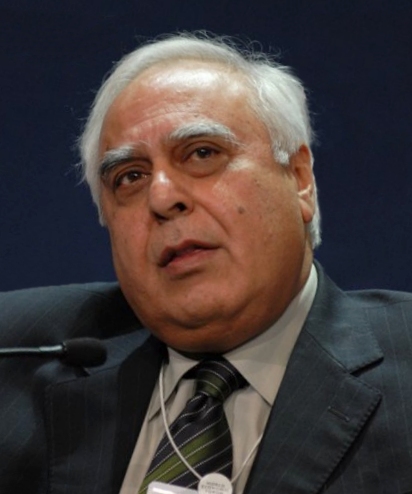
After a gaggle of seniors have argued so far for the petitioner hoteliers, yesterday (August 21) senior advocate Kapil Sibal continued his arguments before the Supreme Court bench hearing the challenges to the Kerala Government’s liquor policy, making it clear that he did not want to whittle down Article 14.
But he brought to the notice of the bench that the interplay between Article 19(6) and Article 14 has not been considered so far.
He said that if it is a legitimate trade, it could be unreasonable under Article 19(6), but the trade in liquor is not a legitimate trade, according to him.
He pointed out that the Supreme Court judgment in State of Kerala vs B Surendra Das decided in March 2014, had rejected all the arguments of the petitioners, which they have raised in the ongoing case.
B Surendra Das was clear that the state had contemplated in 2011 itself that bar licences would be given only to five-star hotels.
Making a distinction between the state government’s policy, and the reason cited for a decision, he said reducing consumption of liquor is the policy, while protection (as distinct from promotion) of tourism is a reason given for the exemption to five-star hotels, even as other star hotels were denied bar licences.
When Sibal said tourism cannot be the objective of the policy, Justice Shiva Kirti Singh said it is a necessary evil which we have to tolerate.
Sibal then cited the reform which he had introduced as the Union HRD Minister, by asking the schools to promote those students who failed in the annual examinations. He said his objective in doing so, was to avoid any psychological setback to the students at a tender age, but his reform has given rise to instances of misuse by some who never bothered to attend the school.
The policy is not irrational, he said. He then referred to how CPI(M) cadres, by just passing Class X, had managed to be appointed as teachers in Government schools in West Bengal, after offering due apologies to CPI(M) friends in the court room. Calling it a process of democracy, he said, even the decision to close the liquor shops in Kerala was delayed because of electoral compulsions. To this, Justice Vikramajit Sen observed that several good judgments of the court were overturned for votes (by Parliament and the Executive).
Arguing that prohibition is not the only way to restrict consumption of liquor, Sibal said Article 14 will apply only when the state denies bar licences to one five-star hotel, while granting it to another. Therefore, the Article 14 test can be used only when someone qualifies for the licence, not otherwise, he said.
To this, Justice Shiva Kirti Singh said that in this case, qualification itself is under challenge.
Sibal answered this by suggesting that the challenge to the Article 14 violation must be narrower, that is, the state cannot discriminate between the citizens who are qualified.
Kapil Sibal was clear that the B Surendra Das judgment did not hold that four and five star hotels are in the same category. You can’t assume it, he said.
Among the key arguments which Kapil Sibal advanced was this: Under Article 19, the moment someone suggests violation, the burden shifts to the state to show how the restriction is reasonable. Under Article 14, however, the person challenging the violation of the equality clause, has to discharge the burden of showing how it has been violated by the State.
The petitioners, in this case, however, have held the opposite view, he said.
Therefore, he said, if one does not have the fundamental right in the first place, he or she can’t ask the state to discharge the burden of showing how the restriction is reasonable. And as the court has held in previous cases, trading in liquor is not a fundamental right.
He further clarified that under Article 14, the law made by parliament or legislature is presumed as constitutional, unless you show it is otherwise.
Kapil Sibal’s most startling observation, however, was this: “Even an unreasonable restriction can’t be struck down,” he said, as far as this case is concerned.
According to him, the Supreme Court’s judgment in the dance bar case State of Maharashtra vs Indian Hotels and Restaurants Association has no relevance in this case.
Further arguments will continue next week.
threads most popular
thread most upvoted
comment newest
first oldest
first
threads most popular
thread most upvoted
comment newest
first oldest
first